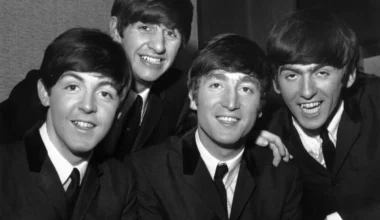“Avant-garde music is a sort of research music,” stated Brian Eno once. Although you’re happy that someone did it, you’re not sure whether you want to hear it. When Lou Reed started working on his most controversial solo album, Metal Machine Music, he must have been thinking about this statement or something similar. Soon after, the more radio-friendly Coney Island Baby emerged, suggesting that Reed wasn’t insane and was just trying to break the mould for the sake of progressing music.
Because of the droning viola work and eccentric compositions of John Cale, The Velvet Underground initially catered to avant-garde tendencies. After the Welshman was fired from the band in 1968, Reed led the group in The Velvet Underground and Loaded away from the seductive oddity of White Light/White Heat and towards a more traditional rock ‘n’ roll sound.
With this move, Reed tried his hand at gaining commercial success. However, things didn’t turn out quite as he had hoped, and he left the band. Because of its lack of personality, some fans believe that Loaded is a weaker record in the catalogue after all. Importantly, it lacked the droning instrumentals and vague ideas that had previously defined the Velvets’ sound. This made some people accuse Reed of caving in.
Reed sought a high salary after a tough start in the finance department. He would have to somewhat cater to popular trends in order to achieve this. Thank goodness, Reed made his breakthrough with the huge hit Transformer in 1972. He maintained his individuality in a set of captivating lyrics while embracing modern glam-rock sensibilities with the help of David Bowie and Mick Ronson.
Reed danced deftly across the thin line separating artistic originality and commercial consciousness at his best. His work in Berlin (1973) and New York (1980s) exemplifies accessible yet artistically compelling music. Around these well-known releases, Reed wildly alternated between mainstream hits like “I Love You, Suzanne” and unusual highlights like ‘Street Hassle’.
Naturally, Reed made mistakes on a number of occasions. Critics and the general public did not well-receive the albums he released. Lulu, Reed’s contentious 2011 Metallica collaboration, is a perfect illustration of this. The album saw a sharp decline in sales and negative reviews from both fans and media, even after Bowie’s support and an early sales boom. Still, these kinds of releases bear witness to Reed’s natural impulse to satiate his own creative itch.
When finances were no object, Reed freely expressed his artistic whim. When talking about Magic and Loss, the solo album he was most satisfied with, the renownedly optimistic and unyielding musician described this side of himself. In Lou Reed’s 2010 song “Talking,” he declared, “It’s my dream album because everything finally came together to where the album is finally fully realised.” “I’m just stunned that I got it to do what I wanted it to do. Commercial considerations never entered into it.”
Magic and Loss was first released in 1992 as an album with a magical theme. After reading esoteric tales of Mexican sorcery, Reed started composing songs for the record. But tragic events befell Reed as he started. As his longtime friend Doc Pomus and an elderly female companion named Rita fell ill and died quickly after. The title comes from Reed’s incorporation of the idea of “loss” into his new music while he was in mourning.
During his conversation with American Songwriter, Reed brought up the album’s disdain for prevailing fashions once more. “An album named Magic and Loss was not desired by anyone,” he stated. “Lou, the head of the record company called. What’s the deal with that, you know? The fact is, I lost two friends. There was nothing up to date to listen to about that or to help deal with it. I am not alone in having experienced that. Everyone has experienced that. I wrote about that as a result.
Although Magic and Loss was not by any means Reed’s most commercially successful album, he still had every right to be proud of his accomplishments. Critics praised his lyrics for their clarity and impact after the success of Songs for Drella and New York.







